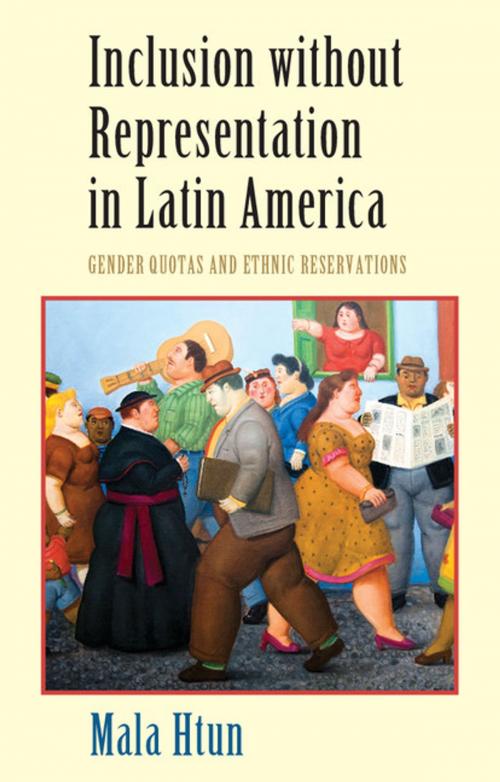Inclusion without Representation in Latin America
Gender Quotas and Ethnic Reservations
Nonfiction, Social & Cultural Studies, Political Science, Government| Author: | Mala Htun | ISBN: | 9781316481691 |
| Publisher: | Cambridge University Press | Publication: | January 14, 2016 |
| Imprint: | Cambridge University Press | Language: | English |
| Author: | Mala Htun |
| ISBN: | 9781316481691 |
| Publisher: | Cambridge University Press |
| Publication: | January 14, 2016 |
| Imprint: | Cambridge University Press |
| Language: | English |
This book analyzes why and how fifteen Latin American countries modified their political institutions to promote the inclusion of women, Afrodescendants, and indigenous peoples. Through analysis and comparison of experiences in Argentina, Bolivia, Brazil, Chile, Colombia, and Mexico, the book accounts for the origins of quotas and reserved seats in international norms and civic mobilization. It shows how the configuration of political institutions and the structure of excluded groups set the terms and processes of inclusion. Arguing that the new mechanisms have delivered inclusion but not representation, the book demonstrates that quotas and reserved seats increased the presence in power of excluded groups but did not create constituencies or generate civic movements able to authorize or hold accountable their representatives.
This book analyzes why and how fifteen Latin American countries modified their political institutions to promote the inclusion of women, Afrodescendants, and indigenous peoples. Through analysis and comparison of experiences in Argentina, Bolivia, Brazil, Chile, Colombia, and Mexico, the book accounts for the origins of quotas and reserved seats in international norms and civic mobilization. It shows how the configuration of political institutions and the structure of excluded groups set the terms and processes of inclusion. Arguing that the new mechanisms have delivered inclusion but not representation, the book demonstrates that quotas and reserved seats increased the presence in power of excluded groups but did not create constituencies or generate civic movements able to authorize or hold accountable their representatives.















